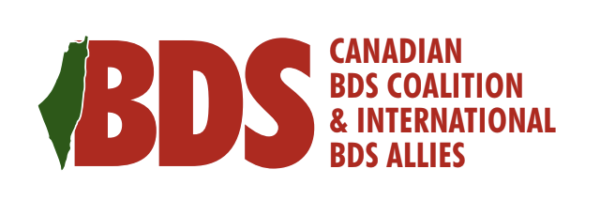BDS is a strategy that allows people of conscience around the world to play an effective role in the Palestinian struggle for justice.
In July 2005, Palestinian civil society issued a call for a campaign of boycotts, divestment and sanctions (BDS) against Israel until it complies with international law and Palestinian rights. A truly global movement against Israeli Apartheid is rapidly emerging in response to this call.
For decades, Israel has denied Palestinians their fundamental rights of freedom, equality, and self-determination through ethnic cleansing, colonization, racial discrimination, and military occupation. Despite abundant condemnation of Israeli policies by the UN, other international bodies, and preeminent human rights organisations, the world community has failed to hold Israel accountable and enforce compliance with basic principles of law. Israel’s crimes have continued with impunity.
In view of this continued failure, Palestinian civil society called for a global citizens’ response. On July 9, 2005 – the one-year anniversary of the International Court of Justice’s historic advisory opinion on the illegality of Israel’s Wall in the occupied Palestinian territory (OPT) – a clear majority of Palestinian civil society called upon their counterparts and people of conscience all over the world to launch broad boycotts, implement divestment initiatives, and to demand sanctions against Israel, until Palestinian rights are recognised in full compliance with international law.
The campaign for boycotts, divestment and sanctions (BDS) is shaped by a rights-based approach and highlights the three broad sections of the Palestinian people: the refugees, those under occupation in the West Bank/East Jerusalem and Gaza Strip, and Palestinians in 1948. The call urges various forms of boycott against Israel until it meets its obligations under international law by:
- Ending its occupation and colonization of all Arab lands and dismantling the Wall;
- Recognizing the fundamental rights of the Arab-Palestinian citizens of Israel to full equality; and
- Respecting, protecting and promoting the rights of Palestinian refugees to return to their homes and properties as stipulated in UN Resolution 194.
The BDS call was endorsed by over 170 Palestinian political parties, organizations, trade unions and movements.
Boycotts target products and companies (Israeli and international) that profit from the violation of Palestinian rights, as well as Israeli sporting, cultural and academic institutions.
Israeli cultural and academic institutions directly contribute to maintaining, defending or whitewashing the oppression of Palestinians, as Israel deliberately tries to boost its image internationally through academic and cultural collaborations. As part of the boycott, academics, artists and consumers are campaigning against such collaboration and “rebranding.” A growing number of artists have refused to exhibit or play in Israel.
Virtually all Israeli companies are complicit to some degree in Israel’s system of occupation and apartheid. We focus our boycotts on a small number of companies and products for maximum impact. The Canadian BDS Coalition focuses on companies that play a clear and direct role in Israel’s crimes and where we think we can have an impact.
Divestment means targeting corporations complicit in the violation of Palestinian rights and ensuring that the likes of university investment portfolios and pension funds are not used to finance such companies. These efforts raise awareness about the reality of Israel’s policies and encourage companies to use their economic influence to pressure Israel to end its systematic denial of Palestinian rights.
Sanctions are an essential part of demonstrating disapproval for a country’s actions. Israel’s membership of various diplomatic and economic forums provides both an unmerited veneer of respectability and material support for its crimes. By calling for sanctions against Israel, campaigners educate society about violations of international law and seek to end the complicity of other nations in these violations.
